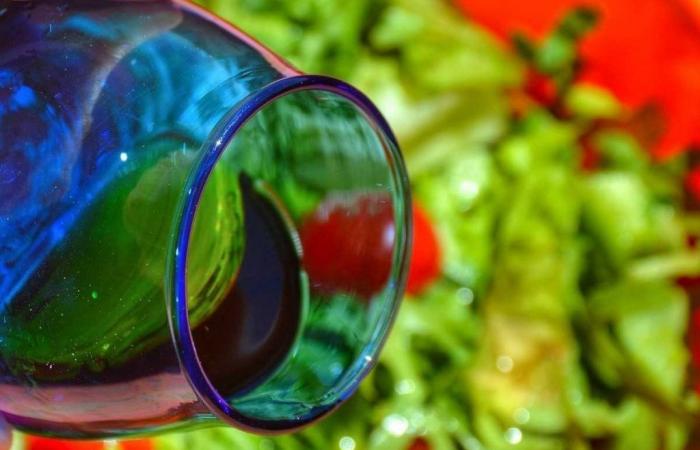In some areas of the human body, such as the oral cavity, the lungs, the genital organs (vagina), the nostrils, the skin, the hair, the eye cavity, the auditory canal and, in a more extensive form also in the intestine (in addition 70% compared to other districts), are present symbiotic bacteria which constitute the microbiota.
Current estimates indicate that the human gut is colonized by a population of over 100 trillion microbial cells, organized into different taxonomic units (taxa), which constitute a biomass exceeding 1 kg in weight, concentrated mainly in the large intestine. Such a large quantity of “foreign” bacterial cells implies a strictly regulated acceptance by the host’s immune system.
During pregnancy, the intestine of the fetus is sterile, it is colonized by microorganisms immediately after birth, through the mouth; breastfeeding also favors the proliferation of some useful bacterial strains, such as bifidobacteria and lactobacilli.
The microbiota of each individual is exclusive and represents a real biological fingerprint, capable of distinguishing one from the other, due to the presence of 400 different species of microorganisms.
The intestinal microbiota (GM, Gut Microbiota), with its symbiotic role, guarantees various metabolic functions for the host and is a source of essential B vitamins and vitamin K.
It is involved in the degradation of dietary fibre, polysaccharides and oligosaccharides, transforming them into simple metabolites such as short chain fatty acids (SCFA, Short Chain Fatty Acids), including acetic, propionic and butyric acid. These acids promote impermeability of the intestinal wall and hepatic anabolism of sugars and lipids.
The composition and diversity of the GM are subject to variations between individuals and within the same individual, under the influence of both physiological and environmental factors, such as antibiotic therapy, lifestyle and above all diet. A diet, with the consumption of extra virgin olive oil, is associated with the promotion of intestinal health, favoring greater biodiversity of these bacteria.
The alteration of the GM, known as dysbiosis, is closely linked to: changes in intestinal permeability (liver damage and endotoxemia from lipopolysaccharides – LPS – of Gram negative bacteria, local inflammation of the tissues with irritable bowel syndrome – IBS -, some host metabolic abnormalities, including overweight, obesity, insulin resistance, metabolic syndrome, low-grade inflammation, colon neoplasms, but also neuroinflammation, hippocampal neuronal disorders, cognitive impairment and depression.
In fact communication between brain and microbiota is bidirectionalthe central nervous system, with its 75 billion neurons and the intestine (microbiota), with its 400 million neurons, interact, communicating with neurotransmitters, modulating each other thanks to a complex network that involves the peripheral nervous system , the endocrine system (the hypothalamic-pituitary-adrenal axis) and the immune system.
Lipopolysaccharides (LPS) are endotoxins present in Gram-negative bacteria that activate the innate immunity receptor, Toll-like 4 (TLR4), which regulates proinflammatory cytokines; their increase in blood circulation is related to dietary factors such as the consumption of saturated fats, which stimulate TLR4 receptors, inducing endotoxemia and inflammation.
It has been observed that each type of fatty acid exerts a different impact on the GM and regarding the groups of bacteria present, it has been demonstrated that the ingestion of lipids has an influence on the ratio of the phyla: Firmicutes/Bacteroidetes.
Most scholars believe that the Firmicutes/Bacteroidetes ratio is an indicator of “intestinal dysbiosis”.
Firmicutes bacteria include over 200 different genera, such as Lactobacillus, Bacillus, Clostridium, Enterococcus and Ruminicoccus while the intestinal Bacteroidetes mainly belong to the Bacteroides and Prevotella genera.
According to the researchers, there are also other biomarkers, in addition to the Firmicutes/Bacteroides ratio (relationship between phyla), the Gram positive/Gram negative ratio (relationship between groups of taxa), the Prevotella/Bacteroides ratio (relationship between genera) and the Fusobacterium nucleatum ratio /Faecalibacterium prausnitzii (species relationship).
The Firmicutes/Bacteroidetes ratio, when high, due to a greater presence of Firmicutes, would seem to indicate an obese phenotype and, when reduced, with a greater presence of Bacteroides, a lean phenotype. The Prevotella/Bacteroides ratio provides us with a parameter capable of identifying overweight or obese subjects who could respond better to a low-calorie diet when this is also particularly rich in vegetable fibre, the digestion of which in the colon gives rise to SCFAs.
The impact of extra virgin olive oil on our second brain: the intestine
Several studies have shown that the consumption of biophenols in extra virgin olive oil (PC), increases Bacteroidetes and/or reduces the Firmicutes/Bacteroidetes ratio, both conditions related to atheroprotection.
PCs enhance the growth of bacteria associated with healthy metabolic markers such as bifidobacteria, lactobacilli, Akkermansia spp. and Faecalibacterium spp. This prebiotic effect was observed with a greater intake of PC-rich foods such as EVOO, cocoa, pomegranate, walnuts, grapes, wine, tea and berries.
GM-derived metabolites may also play a key role in immune homeostasis and host susceptibility to immune-mediated diseases. For example, SCFA acids, produced by the diet, are important modulators of the immune system (in immunotolerance) and may play a role in weight loss, obesity, promoting satiety.
The consumption of extra virgin olive oil is related to the increase in the Clostridium XIVa genus, which is one of the main anaerobic groups of the intestine, responsible for the production of butyrate (SCFA), with a role in reducing total cholesterol and anti-inflammatory activity .
The consumption of extra virgin olive oil is also linked to the multiplication of Clostridium cocleatum as well as the presence of Lactobacillus, which degrade oleuropein, therefore acting as a probiotic.
Probiotics help in maintaining the intestinal barrier by increasing the production of mucin, reducing proinflammatory cytokines, such as TNF-α and IL-6, lowering the concentrations of total cholesterol and LDL-c (Low Density Lipoprotein – cholesterol).
Among the bacteria with a probiotic function, Lactobacillus and Bifidobacterium stand out; both use oleuropein as a carbon source and proliferate as a result, so this antioxidant also acts as a prebiotic.
The daily intake of hydroxytyrosol from extra virgin olive oil (HT) increases the concentration of Lactobacillus, in particular L. johnsonii.
Polyphenols influence the composition of GM, acting as prebiotics; inhibiting the growth of pathogenic bacteria, such as enteropathogenic E. coli and stimulating probiotic bacteria, such as Bifidobacterium.
Intake of hydroxytyrosol prevents the growth of the genera Proteobacteria, Deferribacteres, and Rikenella, and restores GM depressed by a high-fat diet by increasing the integrity of the intestinal barrier, which is an effect similar to that of a fecal transplant in consuming animals HT.
Overall, there is strong evidence suggesting a link between phenolic compounds, GM and derived metabolites. Although many in vitro studies have been conducted using fecal fluids or cultured bacteria, evidence suggests that PCs modulate microbial composition and metabolism, increasing intestinal bacterial diversity with beneficial effects. Specifically, PC consumption produces an increase in Bacteroidetes or a reduction in the Firmicutes / Bacteroidetes ratio, which is associated with atheroprotection. The observed increase in beneficial bacteria such as bifidobacteria and in some cases lactobacilli, after PC administration, could have positive effects on atherosclerosis, immune disorders and obesity.
Extra virgin olive oil modulates the microbiome by acting both as a prebiotic (promoting the growth of beneficial bacteria) than as antibacterial (reducing the growth of pathogenic bacteria).
SCFA acids generated by GM positively influence the mucosal immune system by increasing regulatory T cells and the production of anti-inflammatory cytokines, such as IL-10 and TGF-β, which help reduce local inflammation and promote immune tolerance to commensals and other harmless food antigens.
EVOO promotes a decrease in IgE immunoglobulins, linked to phenomena of allergy to foreign antigens, greater immunotolerance, an increase in secretory IgA immunoglobulins on the intestinal epithelium, providing protection against pathogenic bacteria and promoting the homeostasis of the intestinal microbiota .







